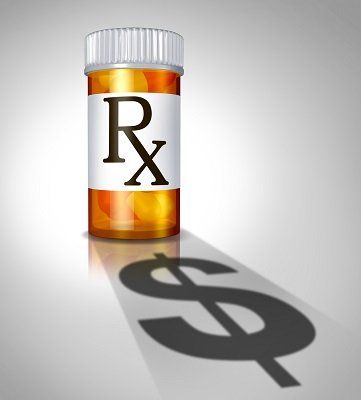CMS Adjusts Inflation Rebate Program Guidelines for Drug Shortages
After originally releasing the Medicare Prescription Drug Inflation Rebate Program in February 2023, CMS has issued changes which address ongoing drug shortages.
The Medicare Prescription Drug Inflation Rebate Program was originally implemented to extend benefits, reduce the costs of drugs, stabilize prescription drug plan premiums, and ensure that the Medicare program is sustainable.

The Centers for Medicare & Medicaid Services (CMS) published revised guidelines on the Medicare Prescription Drug Inflation Rebate Program, which was established to require drug companies to pay a fee to Medicare if their prices for certain drugs rise quicker than the inflation rate, according to a press release from the American Society of Clinical Oncology (ASCO).1
The revised guidelines specify how CMS will adjust the rebates for drugs that are in shortage or at risk of going into shortage. These include rebatable biosimilar drugs, generic drugs facing a severe supply chain disruption, or generic rebatable drugs likely to be in shortage, which are also classified as part B and part D drugs. In this case, a drug company may request a rebate reduction.
“To calculate the reduction in the inflation rebate amount for a rebatable Part B or Part D drug currently in shortage, CMS will first determine the number of days such drug is described as ‘currently in shortage’ on an FDA shortage list during the period for which the rebate is being assessed (i.e., calendar quarter for Part B or 12-month applicable period for Part D),” according to the revised Medicare Prescription Drug Inflation Rebate Program Guidance.2 “CMS will then divide that number by the total number of days in the calendar quarter or 12-month applicable period. CMS will multiply that amount by a percentage that is decreased over time.”
The guidelines state that for drugs that are in shortage, the duration of the rebate reduction will be indefinite for as long as drug is on an FDA shortage list. The first year will see a 25% reduction, the second a 10% reduction, and subsequent years a 2% reduction. Additionally, plasma-derived drugs and Part D rebatable generic drugs would see a 75% reduction in the first year, a 50% reduction in the second year, and a 25% reduction for subsequent years. For drugs that are impacted by a severe supply chain disruption or those that are likely to be in shortage, reduction of rebates will last one year with a possibility for a manufacturer to request an extension of an additional year. The first year will see a 75% reduction and, if approved, so will the second.
The revisions to the guidelines came after the U.S Department of Health and Human Services Office of Inspector General issued a report that detailed challenges of the initial program guidance, which was published in February 2023.3 These included “identifying products subject to Part B rebates; and excluding claims from Part B rebate calculations that were already subject to rebates under the Medicaid Drug Rebate Program, and discounts under the 340B Drug Discount Program.”
The Medicare Prescription Drug Inflation Rebate Program was originally implemented to extend benefits, reduce the costs of drugs, stabilize prescription drug plan premiums, and ensure that the Medicare program is sustainable.4
References
- New guidance on Medicare inflation rebates adjusts for drug shortages. News release. ASCO. December 19, 2023. Accessed December 20, 2023. http://tinyurl.com/mry4fxt4
- Fact sheet: Medicare prescription drug inflation rebate program revised guidance. Centers for Medicare & Medicaid Services. December 2023. Accessed December 20, 2023. http://tinyurl.com/2hjsurx8
- Technical assistance brief: Implementation of inflation-indexed rebates for part B drugs. Hhs.gov. February 7, 2023. Accessed December 20, 2023. http://tinyurl.com/3kue59c8
- Fact Sheet: Medicare prescription drug inflation rebate program initial guidance. Centers for Medicare & Medicaid Services. February 2023. Accessed December 20, 2023. http://tinyurl.com/3v22jjak